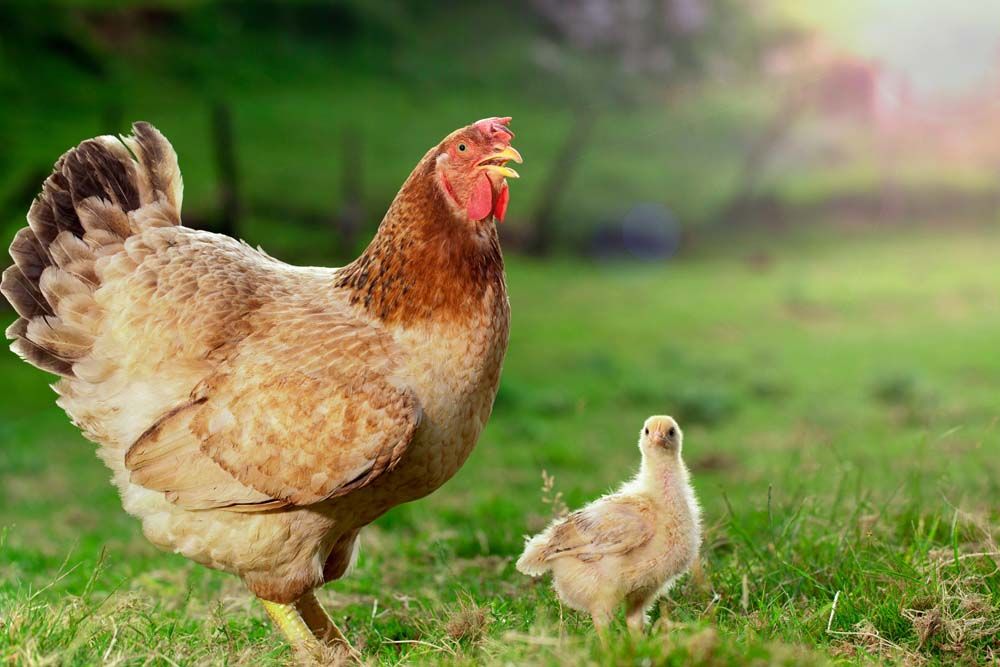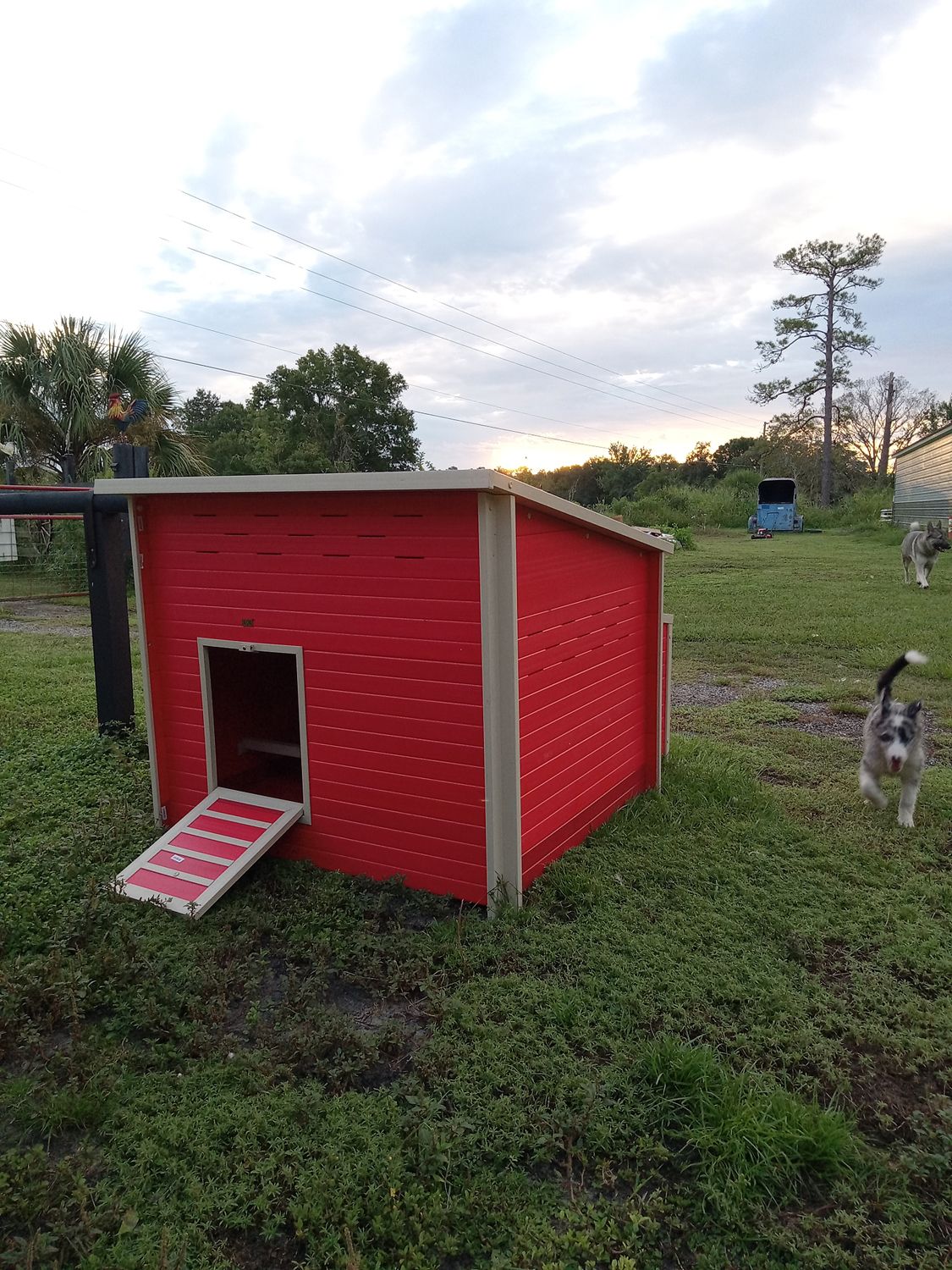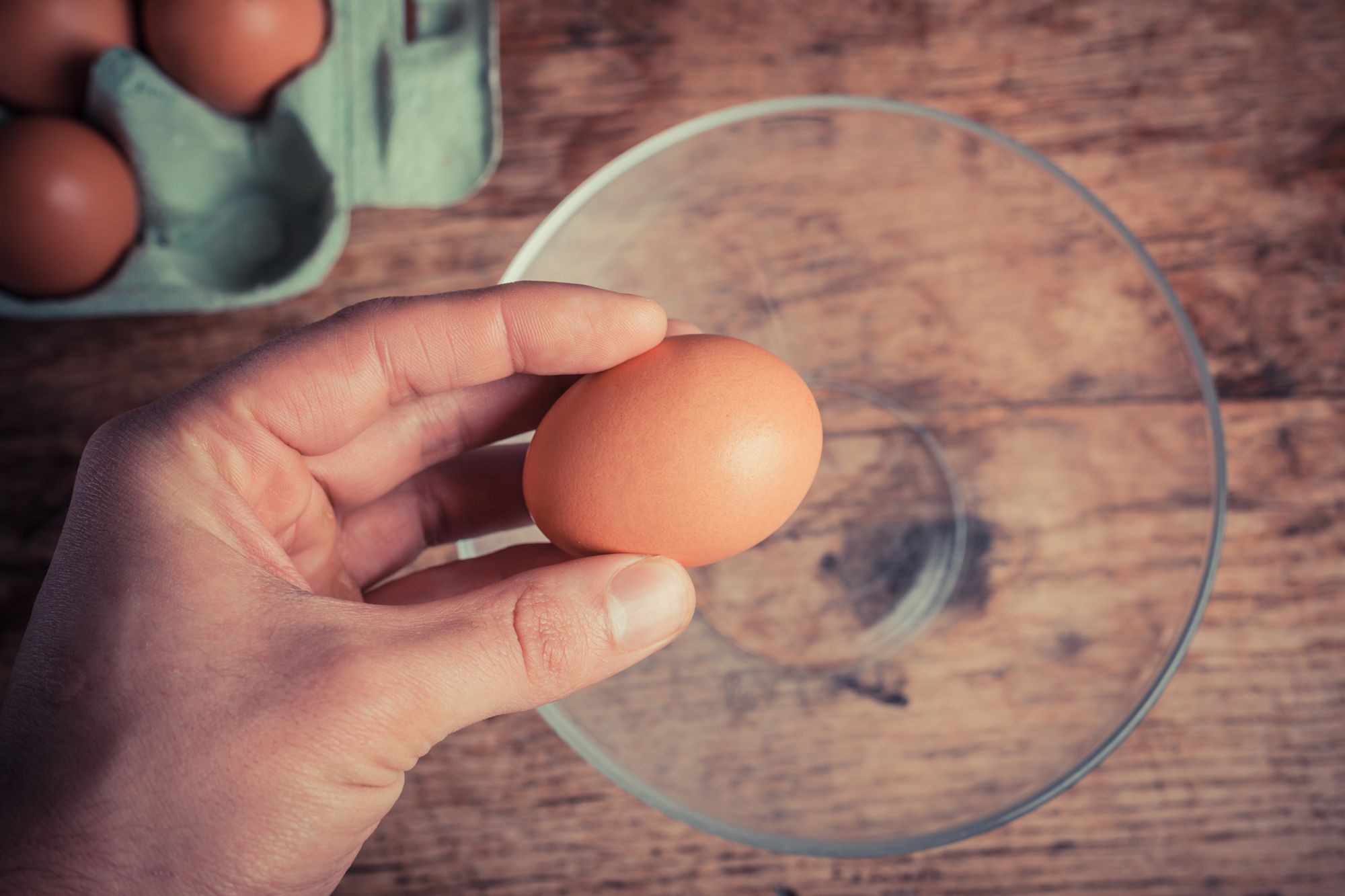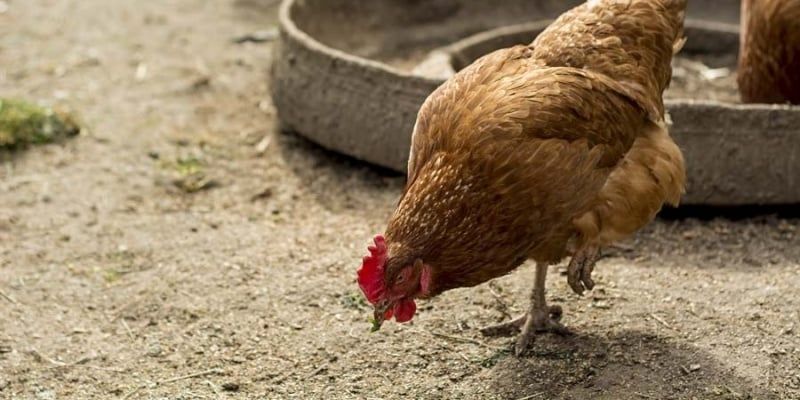A Glut of Eggs
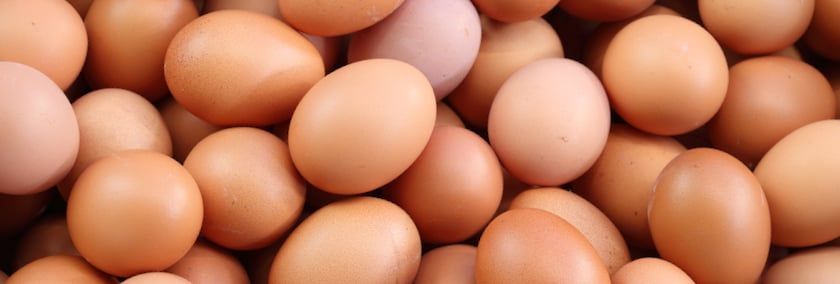

What to do when your hens overproduce
So your hens have had a good diet and their living conditions leave them free from serious care or concern. In return, they have turned up their egg production and you find yourself with bountiful harvest of eggs.
You fill up your fridge, your neighbors’ fridges, and maybe the refrigerators of a few acquaintances, but your hens continue their generous egg production. You might be looking at running out of egg cartons or egg flats, and maybe out of refrigerator space, too.
What do you do now?
Egg storage options
If you are looking to store your eggs in order to make the glut last through the winter, then you are looking for a solution to a problem that existed in the early years of egg production.
Hens laid eggs in the longer days of late spring, summer, and early fall. Hens stopped laying eggs when the daylengths shorten in late fall, winter, and early spring. Even though hens may lay gangbusters through their first winter, it is well-known that they will slow down, or even stop completely, during subsequent winters.
This means that you will need to go back to buying eggs at the grocery store if your cooking and recipes demand the use of fresh eggs. Otherwise you may choose to try one of a few different egg preservation methods. What follows are the methods proven to work, and the food quality and safety measures surrounding them.
In this article we will discuss pickling, water glass, and freezing. Each has constraints so with the information we will share with you, you may find that you are prepared to meet the needs of one method over another.
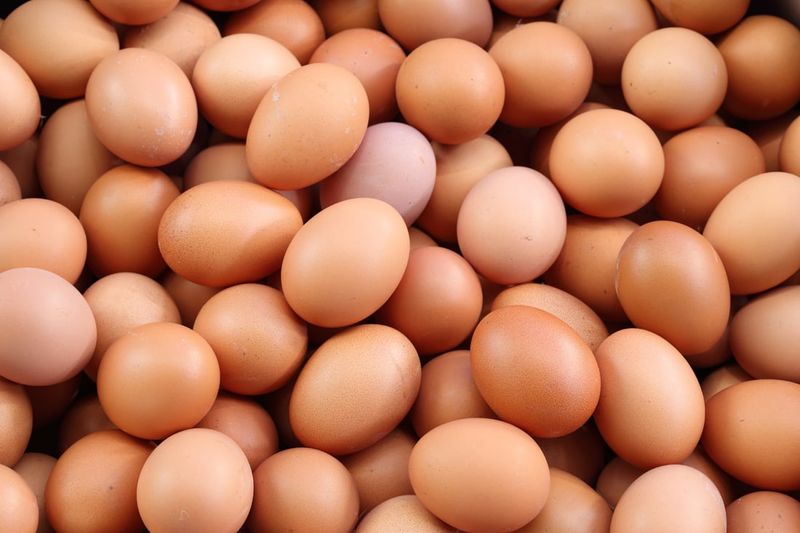
Pickling Eggs
Pickling foods has been a long time food preservation method for more than eggs. You can pickle all kinds of vegetables, so if you are willing to pickle your eggs, then you may be pleased at the change in routine this provides.
To be absolutely clear, there are no pickling recipes for eggs that are meant to be stored at room temperature. I want to emphasize this.
Eggs are a low-acid food that is very dense. Botulism is a bacteria that likes low acid foods that are not fully penetrated by the vinegar in pickled solution. Add to that equation that the bacteria likes to grow at room temperature and you have a deadly problem brewing in a jar.
So now that you have a healthy respect for doing this pickling business correctly, let’s talk about how best to do it.
To start with, all equipment and surfaces that come into contact with the eggs need to be cleaned and sanitized. Hard boil your eggs in boiling water for 15 minutes to ensure that they are cooked throughout. Plunge your hard boiled eggs into ice water until they are cool enough to peel the shell from each egg. Pack the eggs into jars that have been sterilized in boiling water for at least 10 minutes. Boil your seasoned brine for 5 minutes and then add it hot to your jars packed with eggs. Put the lids on the jars and let the jars cool in the refrigerator.
Your eggs will need at least 2 weeks for brine penetration in the refrigerator in order for you to get the flavor you desire. You should plan on using the eggs within two months of making the pickled eggs.
If friends and family are getting tired of fresh eggs from your flock, then the gift of pickled eggs is sure to make them happy. You can dye your eggs pink by adding a few tablespoons of beet juice, which always seems to please recipients.
If you want more information, then be sure to search for pickling eggs on websites run by a cooperative extension program so that you have solid science-based information to use in your favor.
In addition, you might enjoy a visit to the website maintained by the National Center for Home Food Preservation.
Water Glass
Water glass also goes by the name of sodium silicate or limewater. That means this solution is alkaline so gloves should be worn when mixing the solution and adding the eggs to the solution.
Eye protection is also advised when working with water glass.
Eggs that you intend to preserve through water glass must first and foremost be clean and intact.
That means they needs to be absolutely clean of dirt, dust, and droppings. Eggshells with shavings, cobwebs, or feathers will need to be cleaned first. Eggs with leaks or even the hint of a tiny crack should not go into the water glass solution. Eggs need to go into water glass clean in order to come out safe.
The container you use for storing the eggs in a water glass solution should first be cleaned and scalded. Traditionally, crocks were used. When you add your eggs to the water glass you will need to cover the topmost eggs with at least 2 inches of water glass. Eggs cannot protrude from the top of the water glass or they will spoil.
You can use a quart of sodium silicate mixed with 9 quarts of water. A sterilized 5-gallon container will hold this mixture nicely and can handle up to 15 dozen eggs. A lid should be used in order to minimize evaporation and the container needs to be stored in a cool dry place.
Temperature seriously affects the overall quality of the egg’s interior and how it behaves. If you store your eggs at 34-37°F., then the eggs that you pull out of water glass in 6 months time will be comparable to fresh eggs in all ways.
However, you can store your eggs for one year to up to 18 months in some cases if the temperatures can be maintained through the summer months. If you store your water glassed eggs at 55-59°F. for six months then your interior quality will be Grade B or better. Grade B is the lowest grade before an egg is considered inedible, while Grade A is the next best and Grade AA is the highest interior quality grade for eggs.
At higher storage temperatures you begin to sacrifice interior quality, and the eggs that come out of storage will not perform as well as eggs stored at cooler temperatures.
If you store your water-glassed eggs at room temperature, which can range from 41-95°F., then you will be unhappy with the wait. After storage for six months at room temperature, eggs were shown to be classified as inedible due to stuck yolks.
The moral of the story for water glassing eggs is that storing them at room temperature can amount to temperature abuse and the eggs will call your bluff.
Freezing Eggs
If you have space in your freezer, you may be pleasantly surprised that you can store your eggs there—not in the shell however! Instead, you are going to need to separate the shell from the contents.
The time period for storage is not indefinite, either, so your frozen eggs should be used within a year. The key to success is to know how many eggs are in each container you prepare.
I recommend breaking your individual eggs whole into a muffin tin and then freezing it.
If you are separating egg whites from egg yolks, then use ice cube trays for each individual yolk or white. That way, when you pop them out of the tray or muffin tin, you know exactly what each cube contains.
Another key to success is that if you are freezing eggs in which yolks and whites are mixed, then you do not want to beat in a bunch of air. Just mix the two thoroughly without beating in a lot of air.
To keep track of how much egg is in a container, try this method. Beat your eggs together and then measure 3 tablespoons of the mixture into each hole of an ice cube tray. That way, when you go to use them in a recipe, then you already know how much is each egg cube.
Note: Raw whole egg undergoes a gelation process after freezing and then thawing. Most functional properties of eggs are not severely affected by the freezing process but slight changes might be noticeable.
When freezing whole eggs, yolks can become grainy. Graininess is also problem in freezing just the yolks after they are separated from the whites. To prevent this problem, you can add salt or sugar. If you are using sugar, then you have a choice of plain sugar or corn syrup.
If you are freezing a bunch of egg whites, then put 2 tablespoons of egg white into each hole of an ice cube tray and know that that is equivalent to one egg white.
Once you pop your individually-frozen egg product out of the trays or tins, place them in a Ziploc bag and be sure to label with the contents. Is it egg white, yolk, or mix? Did you add sugar? What amount does each cup contain?
Lastly, to thaw your egg products, do so in the refrigerator, as this is the safest method. Do not re-freeze thawed eggs.
Recipe alternatives
If you are looking to use up a lot of fresh egg whites all at once, then plan on making an Angel Food Cake. Most recipes that are made from scratch use 12 egg whites.
So what do you do with the egg yolks? Well, have you ever had Pound Cake? The yolks not only impart a lovely color but most recipes use up a lot of egg yolks.
Angel Food Cake is a healthy dessert due to the low fat content, but both cakes make lovely gifts at any time of the year.
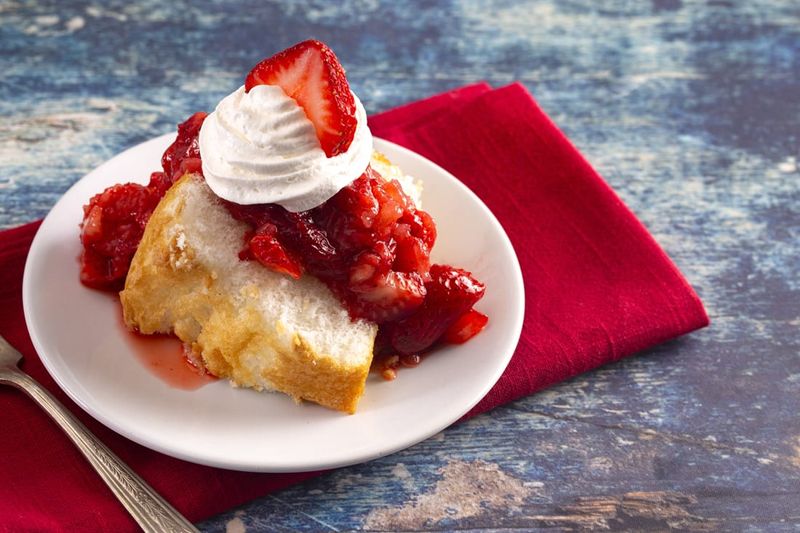
You can make mayonnaise in a blender or with a stand mixer. Eggs are used as the bridge between the acid (vinegar or lemon juice) and the oil that you use. Fresh, homemade mayonnaise, is very versatile. You can choose what kind of oil you want to use and maybe incorporate something fancy like pecan oil. Perhaps you want to use lime juice or some other type of acid instead of vinegar or lemon juice.
Mayonnaise is the basis for aioli, béarnaise sauce, and hollandaise sauce. The acid in the mixture is a way to preserve the egg much in the same way that you think about pickling, but fresh mixtures are only good for a week or so.
Have you ever made your own lemon curd? It is delicious and super easy to make. You essentially are getting the sugar to mix with the citrus juice and the egg. The acid in the citrus juice preserves the egg. Some recipes use whole eggs and that leaves you with a curd that is lighter.
Some recipes use just the yolks, but quite a few of them. That makes a curd that is denser and “eggier” in taste. Play around with each and find the one that hits your palate just right.
Having a bunch of eggs presents every flock owner with a unique problem. Now, hopefully, this article has presented you with a solution to this problem. Have fun with this food preservation adventure and stay safe in the kitchen now that you have more facts in your corner.
Tags:Plain Talk

Chicken Whisperer is part of the Catalyst Communications Network publication family.

